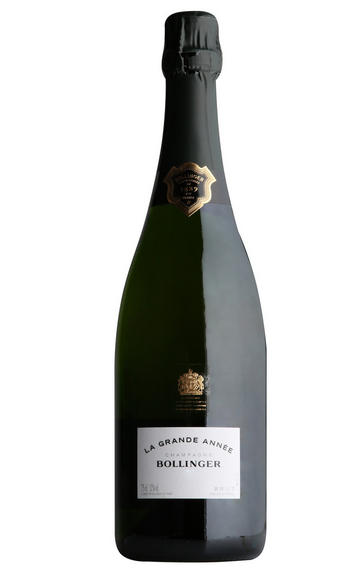
2002 Champagne Bollinger, La Grande Année, Brut
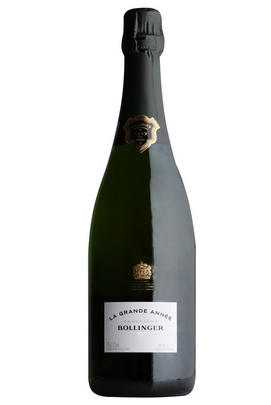
Critics reviews
Antonio Galloni - 31/10/2011
About this WINE
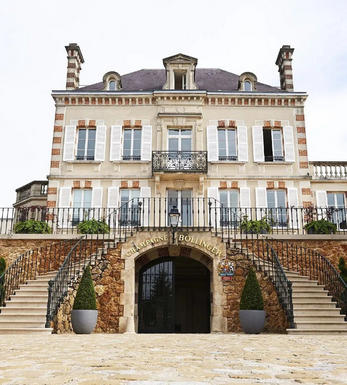
Bollinger
The Champagne House of Bollinger was established in 1829 by Jacques Bollinger and Paul Renaudin. Over the years the vineyard holdings have been steadily increased with the largest expansion taking place under the stewardship of the legendary Mme Lily Bollinger. She ran the company between 1941 and 1977 and today it is managed by her great-nephew, Ghislain de Montgolfier.
Bollinger has a reputation for producing muscular champagnes with body, depth and power, and is today considered one of the "Great" Champagne houses.
70% of the grapes come from the firm's own vineyards. 80% of the harvest is barrel-fermented with the wines being kept on their yeast lees for an extended period of time (in the case of the RD, around 10 years).
Bollinger produces classic, complex, Pinot-Noir dominated champagnes with the ability to age gracefully for many years.
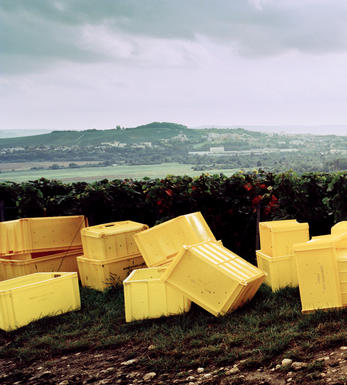
Brut Champagne
Brut denotes a dry style of Champagne (less than 15 grams per litre). Most Champagne is non-vintage, produced from a blend from different years. The non-vintage blend is always based predominately on wines made from the current harvest, enriched with aged wines (their proportion and age varies by brand) from earlier harvests, which impart an additional level of complexity to the end wine. Champagnes from a single vintage are labelled with the year reference and with the description Millésimé.
Non-vintage Champagnes can improve with short-term ageing (typically two to three years), while vintages can develop over much longer periods (five to 30 years). The most exquisite and often top-priced expression of a house’s style is referred to as Prestige Cuvée. Famous examples include Louis Roederer's Cristal, Moët & Chandon's Dom Pérignon, and Pol Roger's Cuvée Sir Winston Churchill.
Recommended Producers : Krug, Billecart Salmon, Pol Roger, Bollinger, Salon, Gosset, Pierre Péters, Ruinart
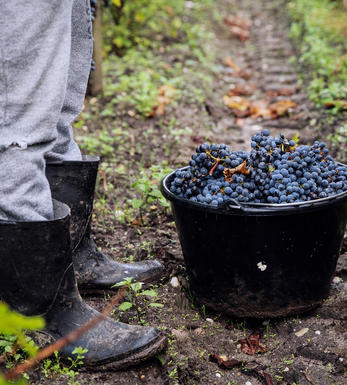
Champagne blend
Which grapes are included in the blend, and their proportion, is one of the key factors determining the style of most Champagnes. Three grapes are used - Pinot Noir, Chardonnay and Pinot Meunier.
26% of vineyards in Champagne are planted with Chardonnay and it performs best on the Côtes des Blancs and on the chalk slopes south of Epernay. It is relatively simple to grow, although it buds early and thus is susceptible to spring frosts. It produces lighter, fresher wines than those from Burgundy and gives finesse, fruit and elegance to the final blend. It is the sole grape in Blancs de Blancs, which are some of the richest long-lived Champagnes produced.
Pinot Noir accounts for nearly 40% of the plantings in Champagne and lies at the heart of most blends - it gives Champagne its body, structure, strength and grip. It is planted across Champagne and particularly so in the southern Aube district.
The final component is Pinot Meunier and this constitutes nearly 35% of the plantings. Its durability and resistance to spring frosts make the Marne Valley, a notorious frost pocket, its natural home. It ripens well in poor years and produces a soft, fruity style of wine that is ideal for blending with the more assertive flavours of Pinot Noir. Producers allege that Pinot Meunier lacks ageing potential, but this does not deter Krug from including around 15% of it in their final blends.


Buying options
Add to wishlist
Description
Good old Bollinger pioneered giving useful information on the back label. This wine, made from the produce of 16 Premier and especially Grand Cru villages is intense and savoury.
(Jancis Robinson - FT Top 100 Festive Wine - 26-Nov-2011)
An absolutely magnificent nose of melted butter on thick white toast with beguiling undertones of tropical fruits. (I know it sounds a tad romantic but it really does!) As complex on the palate, with a weight and breath that's totally compelling. Rich, round and profound this is truly one of the most exciting champagnes I've drunk. Gorgeous now but will grow and blossom beautifully over the next decade.
(Simon Staples, Berrys' Fine Wine Director)
This enticing blend of 60% Pinot Noir and 40% Chardonnay has been fermented in oak and aged under natural cork until disgorgement in July of 2010, then allowed a respectable repose before its release. The nose is forthright and powerful, with orchard fruit and hints of honey evidenced, together with sherbet and grilled almond, all amazingly pure and precise. Intimations cede to certainties on the palate as encyclopaedic flavours defer to the reputations of vintage and House alike, with nutty, creamy notes, an elegant fruit scherzo with fine balancing acidity, and an authoritative finish, all perfectly integrated and wonderfully fresh.
(Simon Field MW, Berrys' Champagne Buyer)
wine at a glance
Delivery and quality guarantee